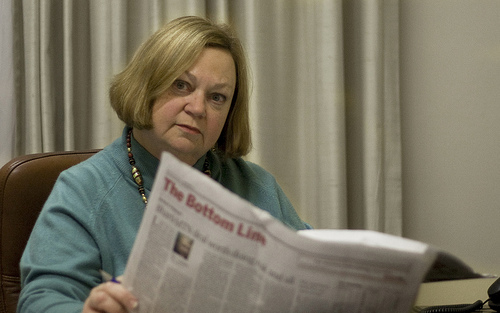
Telkom should be structurally separated into two businesses, wholesale and retail, to facilitate greater competition in SA’s telecommunications industry, says new Democratic Alliance (DA) shadow communications minister Marian Shinn.
Speaking to TechCentral in her first wide-ranging media interview since being appointed to the communications portfolio, Shinn says Telkom has acted as a “dead hand” on the industry in the past 20 years and there is a “real need to debate the unbundling of Telkom, splitting off the retail side of it so there can be real competition”.
Telkom’s retail arm would then have to compete on an equal basis and on a level playing field with private-sector players, Shinn says. She advocates the BT Group (formerly British Telecom) model, where BT spun off its infrastructure business into a separate company called Openreach.
In addition, government ought to sell its remaining shares in Telkom. The state owns almost 40% of the company.
“The current government is fixated on its role as a developmental state,” Shinn says. “It believes it has the smartest guys around. But, until we change that mind-set — as long as the centralised, developmental state mentality exists — SA’s economy cannot take off.”
The developmental state agenda means SA can’t generate enough money and sufficient growth to create jobs and to deal with the country’s social problems, she adds.
“Government should play a very light-handed role in all of this … and let business generate the income and the tax revenue, and then government can spend that tax revenue on its social development programmes. It has to get out of this situation where it thinks it knows best.”
Shinn believes the discussions between Telkom and Korea’s KT Corp provide an ideal opportunity for government to lessen its stake in Telkom. Early indications are that if the deal goes ahead, Telkom will issue new shares to allow KT Corp to take a 20% stake in the company. Shinn says government should facilitate the deal by agreeing to sell a further 20% of its equity in Telkom rather than diluting the stakes of all shareholders.
She also warns against a repeat of the situation in the late 1990s, when America’s SBC (now AT&T) and Telekom Malaysia bought a 30% stake in Telkom and earned significant management fees, all the while hiking telecoms tariffs, only to exit the country a few years later.
“If a less venal arrangement is arrived at, that would be fair,” she says. “But there needs to be some kind of long-term commitment [by the Koreans] and the sharing of intellectual property and expertise. A foreign investor wouldn’t be a problem as long as there was a tie-in to a long-term commitment.”
On local-loop unbundling, where Telkom’s rivals would be given access to its “last mile” of copper cable infrastructure into businesses and homes, Shinn says the Independent Communications Authority of SA is treating the company with kid gloves.
“The whole point of local-loop unbundling is to open the competitive space,” she says. “Sure, Telkom will take a knock, but that’s part of the reason we need to unbundle it. If Telkom became a retailer, they’d be competing for access to the local loop along with everyone else. They would not be getting the friends-of-the-family price for it either.”
Separately, Shinn says she is concerned about how little attention government is paying to the communications industry. She says that apart from a fleeting reference to Sentech and digital terrestrial television, finance minister Pravin Gordhan ignored the sector in his national budget speech in parliament this week.
“There seems to be a total disconnect, a total missing of the story of the importance of communications to economic growth in this country,” she says. “The revolving door at the SABC seems to take up most of [the department of communications’] time and energy. The major part of their budget goes towards enterprise development, but that’s a role for the department of trade & industry. If there was a better focus on what the department of communications should be doing – supporting the communications infrastructure of the nation — there’d be a much better roll-out of communication services.” — Duncan McLeod, TechCentral
- Subscribe to our free daily newsletter
- Follow us on Twitter or on Google+ or on Facebook
- Visit our sister website, SportsCentral (still in beta)

